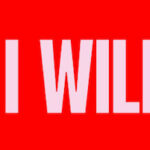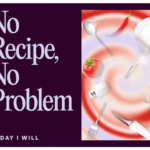Robyn Neen
Founder of Abortion Care Tennessee
-
Today I Will...

JOIN ROBYN FOR A DAY IN THE LIFE OF FIGHTING FOR ABORTION!
It’s Women’s Health Week, so a few of our features this week will be focused on health, wellness, and chronic illness. Up first, abortion rights!
Robyn Neen (she/her) is a community organizer, abortion doula, and the founder/developer of Abortion Care Tennessee. Her intro to feminism was largely through a Black feminist and repro justice lens, where she learned early on that reproductive freedom is integral. Her organizing roots (everything from queer rights to anti-racism) were in movement work, which “advocates for supporting and creating smaller, grassroots organizations that work directly with the community,” so abortion funds and independent clinics were a natural area of focus for her. She saw how larger, more corporate non-profits do very little to increase abortion access in the Southeast; smaller abortion funds and indie clinics on the other hand shouldered most of the load, despite getting far less funding.
And funding isn’t the only problem people are facing these days. “I keep screaming it, because it really feels like people (especially folks not located in the South) aren’t grasping it: Tennessee has the most extreme abortion ban in the country, and that is everyone’s problem,” Robyn says. Even before the official reversal of the Roe decision, much of the South already had little to no access to abortion. But she and other organizers had experience working in an impossible landscape, and were therefore able to adapt to legal changes. “We now organize to get patients out of state, and fund directly to clinics in receiving states, with those funds being earmarked for TN patients. We also host self-managed abortion training, and collaborate with other organizations in the state like Beyond Roe Collective and Healthy and Free Tennessee, to promote education and advocacy around abortion and reproductive healthcare,” she explains.
Now you know what ACT does, but what does Robyn’s day-to-day look like? Read on to find out.
What’s your morning routine like?
I’m usually up between 6:30 and 8:30 A.M. every morning. Because I am in a leadership role, I simultaneously have complete control over my schedule and also have to be really flexible and available throughout the week to engage with staff members, board members, donors, collaborators, etc. So sometimes mornings look like me rolling out of bed directly onto Zoom or taking calls while on a morning walk. I do try my hardest to carve out a little time for myself in the morning, and that routine includes doing morning pages, an attempt at meditation (not always successful!), 20 mins of yoga, coffee, and a shower.
What does your work day typically look like?
It always looks so different! This was an event week, and I primarily manage program/fundraising, so a very busy one for me! Ahead of the event I managed the last minute stuff before the event, while being the point person during it.
On more normal days, I usually get started working around 9 A.M., and try to tackle the really boring “administrative” stuff while I am properly caffeinated [laughing]. Usually any meetings happen between 11 A.M. and 2 P.M. If it’s just a call and I don’t need to be seated in front of a computer, I do my best to take that while on a walk, or sitting somewhere outside in nature. Otherwise, I’m doing independent work and trying to break up the WFH monotony.
What do you do for lunch?
Lunch? In this economy?! Jk, sorta… I do my best to eat lunch, but it’s often on-the-go, on a train or in a car, or shoveling food into my mouth standing over the counter before hopping into the next thing. I’m a big fan of snacking throughout the day and loaded, protein-packed smoothies followed by a more substantial dinner a few hours later.
What do you do when you’re done with work for the day?
This is my life’s work, and it never really stops. A part of that is because of my passion and genuine interest in it, the other part is because this issue directly affects me and my body, and so I don’t really get to turn it “off.” I’m fighting for my own freedom just as much as I’m fighting for the freedom of our patients. I do try to properly close my computer and log out of our social accounts so I can’t mindlessly open them throughout the evening, and then take a walk or do a workout video or some kind of ritualistic thing that technically “ends” the work day, but the chances of me being roped back in at some point in the evening is pretty high. Right now, I am okay with how much of my effort and energy is necessary, sometimes around the clock. I’m energized in this fight, but I can reassess and draw boundaries as needed whenever I might need to.
It can be really hard not to bring the work home when it’s something you care a lot about. How do you decompress?
When I have my moments off, I’m usually doing something outside in nature, reading, or watching something (big cinephile/pop culture nerd). I also unload all my wild work stories on my very understanding, patient friends. Despite it being really emotionally and physically grueling work, there is also so much joy and community in it.
What’s your nighttime routine?
I love a wind down! I’ll definitely do some reading (usually prone to fiction in the evening) and/or journaling. I might watch a movie or trash TV with my best friend/roommate when weed might be consumed. A nightly treat is a definite, because I deeply believe it’s necessary for human survival.
I have a truly absurd multi-step skincare routine, and while I rotate a smattering of products that would actually be too daunting to list, my holy grail items are all Dieux products. They’re absolutely next level, affordable, have sustainable packaging, and the brand is woman-owned. I love Instant Angel and Deliverance, but their eye mask has me waking up every morning looking like I don’t bleed myself dry so we can access our most basic freedoms (which should be a massive endorsement). Bonus: They donate a portion of proceeds to the National Network of Abortion Funds!
How can we help ACT?
Recurring monthly donations are the biggest impact, even if it’s $5 per month. Sharing, liking, any kind of engagement of our work on social media is a radical act, because the algorithms really are trying to silence the work of abortion orgs. Beyond that, what’s your skill? What’s your talent? We have had the most creative fundraisers planned on our behalf, and people organize to raise money for us in new, inventive ways all the time. If you want to fund an abortion but don’t have much extra cash, you can start an abortion giving circle which is basically just getting your community together to fund the cost of an abortion for someone who needs it.
Most importantly: destigmatize! Talk to your community—online and off—about abortion access and why it matters to you. Say abortion! Work to dismantle the capitalist, racist, patriarchal structures that make our work necessary. Create a world where abortion funds don’t have to exist because everyone has agency over their own body and access to whatever those choices might be.



